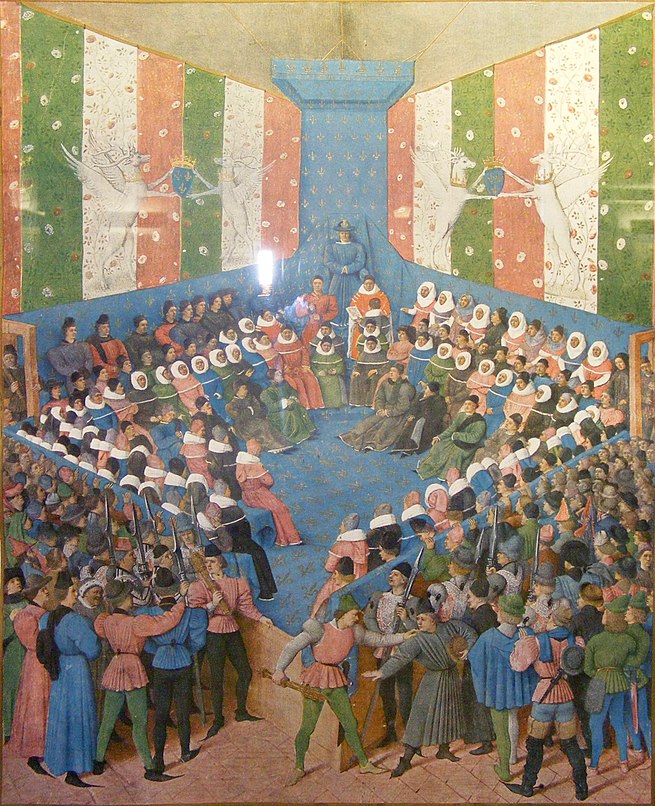
Main Difference
The main difference between Trial and Trail is that the Trial is a coming together of parties to a dispute, to present information in a tribunal and Trail is a path with a rough beaten or dirt/stone surface used for travel.
-
Trial
In law, a trial is a coming together of parties to a dispute, to present information (in the form of evidence) in a tribunal, a formal setting with the authority to adjudicate claims or disputes. One form of tribunal is a court. The tribunal, which may occur before a judge, jury, or other designated trier of fact, aims to achieve a resolution to their dispute.
-
Trail
A trail is usually a path, track or unpaved lane or road. In the United Kingdom and the Republic of Ireland path or footpath is the preferred term for a walking trail. The term is also applied, in North America, to routes along rivers, and sometimes to highways. In the US, the term was historically used for a route into or through wild territory used by emigrants (e.g. the Oregon Trail). In the USA “trace” is a synonym for trail, as in Natchez Trace. Some trails are single use and can only be used for walking, cycling, horse riding, snowshoeing, and cross-country skiing; others, as in the case of a bridleway in the UK, are multi-use, and can be used by walkers, cyclists and equestrians. There are also unpaved trails used by dirt bikes and other off-road vehicles and in some places, like the Alps, trails are used for moving cattle and other livestock.
-
Trial (noun)
An opportunity to test something out; a test.
“They will perform the trials for the new equipment next week.”
-
Trial (noun)
Appearance at judicial court in order to be examined.
-
Trial (noun)
A difficult or annoying experience.
“That boy was a trial to his parents.”
-
Trial (noun)
A tryout to pick members of a team.
“soccer trials”
-
Trial (noun)
A piece of ware used to test the heat of a kiln.
-
Trial (noun)
An internal examination set by Eton College.
-
Trial (adjective)
Pertaining to a trial or test.
-
Trial (adjective)
Attempted on a provisional or experimental basis.
-
Trial (adjective)
Characterized by having three (usually equivalent) components.
-
Trial (adjective)
Triple.
-
Trial (adjective)
Pertaining to a language form referring to three of something, like people; contrast singular, dual and plural. (See Ambai language for an example.)
“No language has a trial number unless it has a dual.”
-
Trial (verb)
To carry out a series of tests on (a new product, procedure etc.) before marketing or implementing it.
“The warning system was extensively trialed before being fitted to all our vehicles.”
-
Trial (verb)
To try out (a new player) in a sports team.
“The team trialled a new young goalkeeper in Saturday’s match, with mixed results.”
-
Trail (verb)
To follow behind (someone or something); to tail (someone or something).
“The hunters trailed their prey deep into the woods.”
-
Trail (verb)
To drag (something) behind on the ground.
“You’ll get your coat all muddy if you trail it around like that.”
-
Trail (verb)
To leave (a trail of).
“He walked into the house, soaking wet, and trailed water all over the place.”
-
Trail (verb)
To show a trailer of (a film, TV show etc.); to release or publish a preview of (a report etc.) in advance of the full publication.
“His new film was trailed on TV last night.”
“There were no surprises in this morning’s much-trailed budget statement.”
-
Trail (verb)
To hang or drag loosely behind; to move with a slow sweeping motion.
“The bride’s long dress trailed behind her as she walked down the aisle.”
-
Trail (verb)
To run or climb like certain plants.
-
Trail (verb)
To drag oneself lazily or reluctantly along.
“Our parents marched to church and we trailed behind.”
-
Trail (verb)
To be losing, to be behind in a competition.
-
Trail (verb)
To carry (a firearm) with the breech near the ground and the upper part inclined forward, the piece being held by the right hand near the middle.
-
Trail (verb)
To flatten (grass, etc.) by walking through it; to tread down.
-
Trail (verb)
To take advantage of the ignorance of; to impose upon.
-
Trail (noun)
The track or indication marking the route followed by something that has passed, such as the footprints of animal on land or the contrail of an airplane in the sky.
-
Trail (noun)
A route for travel over land, especially a narrow, unpaved pathway for use by hikers, horseback riders, etc.
-
Trail (noun)
A trailer broadcast on television for a forthcoming film or programme.
-
Trail (noun)
A edges are distinct.
-
Trial (noun)
a formal examination of evidence by a judge, typically before a jury, in order to decide guilt in a case of criminal or civil proceedings
“the editor was summoned to stand trial for libel”
“the newspaper accounts of the trial”
-
Trial (noun)
a test of the performance, qualities, or suitability of someone or something
“clinical trials must establish whether the new hip replacements are working”
-
Trial (noun)
a sports match to test the ability of players eligible for selection to a team
“he cracked his ankle the week before the final trial”
-
Trial (noun)
a test of individual ability on a motorcycle over rough ground or on a road.
-
Trial (noun)
an event in which horses, dogs, or other animals compete or perform
“horse trials”
-
Trial (noun)
a person, experience, or situation that tests a person’s endurance or forbearance
“the trials and tribulations of married life”
-
Trial (verb)
test (something, especially a new product) to assess its suitability or performance
“teachers all over the UK are trialling the materials”
-
Trial (verb)
(of a horse, dog, or other animal) compete in trials
“the pup trialled on Saturday”
